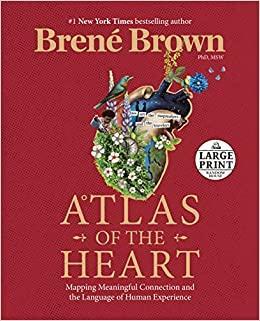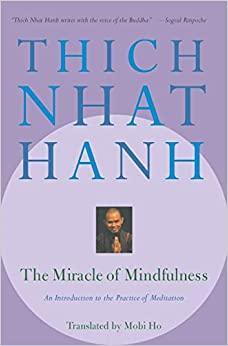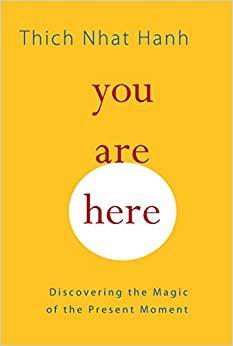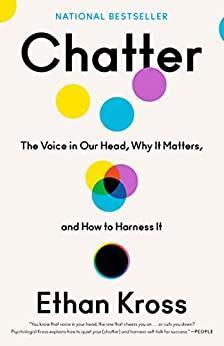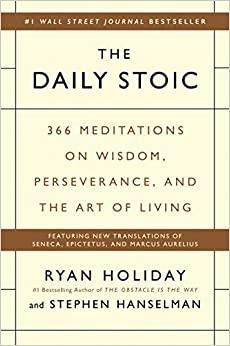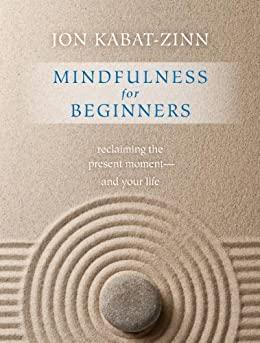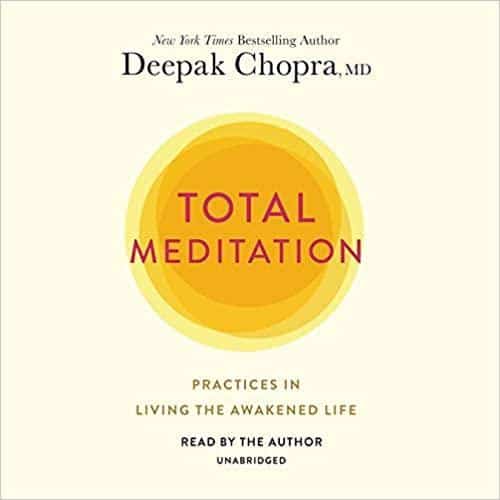When was the last time you tuned out every noise in your head to focus on the present moment? It’s not always easy. Mindfulness involves being actively aware of what you’re doing while you’re doing it.
This can be a challenge in a 21st-century world, with all the pulls at one’s attention. However, practicing mindfulness today is possible. I’ve collected some of the best mindfulness books to help you build your practices.
Definition of Mindfulness
Mindfulness is a state of being conscious, fully present, or aware of something. It’s a fundamental human ability to be mindful of your thoughts, feelings, reactions, and immediate environment.
Mindfulness is based on paying attention to one thing (breathing, a leaf on a tree, a sound in the distance) and bringing oneself into the present.
The mind often wanders to places, even while being mindful about your focus. Minds are active; it can be increasingly difficult to stay in the present. Mindfulness is the art of gently focusing the mind on what is happening now.
Though mindfulness has been part of religious doctrine, the practice has extended beyond religion. Science-based secular mindfulness practice started in the United States with Jon Kabat-Zinn’s extensive work on the subject. In 1979, he launched the Mindfulness-Based Stress Reduction (MBSR) model at the University of Massachusetts, which helped the concept go mainstream.
Are you curious about how mindfulness can help you live better? I’ve outlined some proven benefits of practicing mindfulness in your day-to-day life.
Importance of Mindfulness Books
Reading books about mindfulness is an excellent way to begin practice. I’ve collected some of my favorite mindfulness books here (just scroll ahead to see them). For now, let’s discuss the physical and psychological benefits of practicing mindfulness.
Enhance Cognitive Ability
Mindfulness can improve your brain health. A 2019 study of first-time meditators who practiced 40 days of mindfulness showed significant shifts in brain structure, such as gray matter volume and critical thickness. These results were linked to lower depression scores compared to the brain structure of non-meditators.
People who practice mindfulness experience fewer symptoms of depression. Your memory comes alive, and you can sustain more attention for extended periods than others.
Reduce Stress and Anxiety
Mindfulness has also been linked to reduced stress and anxiety. A study in which participants were assigned to an eight-week mindfulness-based stress reduction group was measured by fMRI after watching sad films. They had lower anxiety, depression, and somatic distress than the control group.
Such studies show that mindfulness meditation provides higher emotional intelligence, allowing people to experience difficult emotions selectively.
Manage Chronic Pain
Patients experiencing a great deal of pain will benefit from mindfulness therapy. Mindfulness-based stress reduction (MBSR) harnesses mindfulness meditation, and related studies show that it significantly decreases chronic pain in patients, improving their chances of living with greater comfort.
Improve Sleep Patterns
A study released by JAMA Internal Medicine revealed that older adults who had trouble sleeping gained short-term relief after practicing mindfulness. MBSR therapy has various health benefits, including enhanced sleep quality among prostate and breast cancer patients.
Improve the Quality of Life
Mindfulness substantially contributes to self-insight, morality, intuition, and fear modulation. All these are functions of the brain’s middle prefrontal lobe essential to a better life.
In addition to heightened cognitive ability, mindfulness supplies immense health benefits, improving quality of life. As you practice mindfulness meditation, you start to process information faster with less effort.
7 Best Mindfulness Books Recommended for You
Here are the top seven mindfulness books I recommend in my practice.
1. Atlas of the Heart
In Atlas of the Heart, Brené Brown shows us how to practice mindfulness by gaining a rich understanding of complex, complicated emotions. This mindfulness book outlines similar emotions on a spectrum and establishes the disparities among all of them.
Brown identifies eighty-seven emotions and experiences that make us human, developing a new structure for meaningful connections. I recommend it to clients who need insight into why they do what they do and how they might respond differently to others.
Where to Buy: Brenebrown.com
2. The Miracle of Mindfulness
The Miracle of Mindfulness is one of many of Thich Nhat Hanh’s meditation books. I particularly love his style because he uses humor to help readers discover opportunities for engaging in mindfulness while living their everyday lives.
Nhat Hanh doesn’t propose that you set aside hours in your day for mindfulness meditation because he agrees that you don’t have time. Instead, the Nobel Peace Prize nominee shows you how to practice mindfulness while washing the dishes.
Where to Buy: Barnes & Noble
3. You Are Here
I cannot get enough of Nhat Hanh’s teachings, so I also recommend You are Here. This instructive book on mindfulness can quicken you from the pit of self-absorption to a path of self-healing.
This book is based on a retreat Nhat Hanh organized for Westerners on the essence of mindfulness meditation. He emphasizes transforming evil into good instead of pitching well against corruption.
Where to Buy: Barnes & Noble
4. Chatter
In Chatter, Ethan Kross guides us to harness the power of our minds to achieve a happier and more productive life. When we interact with our minds, we tap into the force within ourselves for a more effortless work-life balance.
Kross uses compelling stories, expert research, and intelligent arguments to advocate self-talk as a form of mindfulness. Chatter taught me that once we’re aware of the constant dialog in our heads, we can shift it.
Where to Buy: Ethankross.com
5. The Daily Stoic
The Daily Stoic comprises 366 days of insights, exercises, and meditations. Written by Ryan Holiday and Stephen Hanselman, this book is based on stoic philosophy. Holiday has become quite a leader in modern stoicism. The philosophy invites you to find the inner peace, resilience, and self-knowledge required for a better life.
I recommend The Daily Stoic for people who desire to learn more about the ancient practice of Stoicism but aren’t yet ready to read the original works of the philosophers. Some ambitious readers have followed the teachings within these books for one year, and enjoyed significant transformation as a result.
Where to Buy: Ryanholiday.net
6. Mindfulness for Beginners
Jon Kabat-Zinn is notable for popularizing mindfulness practices in the West. Let’s call him a mentor I haven’t met in person yet. Kabat Zinn’s Mindfulness for Beginners is a worthwhile read for anyone starting their mindfulness journey.
The book is so easy to read that you can consume everything in one sitting. Kabat Zinn’s wealth of experience in teaching mindfulness is priceless. He invites readers to transform their relationships, career, and mindset toward the world through simple daily practice.
Where to Buy: Jonkabat-zinn.com
7. Total Meditation
Deepak Chopra’s Total Meditation is a revolutionary book championing conversations about mindfulness in the West. You can fully explore mindfulness’s physical, mental, relational, and spiritual benefits in your daily life.
Chopra teaches us a form of awareness that brings self-healing rather than propagates self-absorption. In Total Meditation, you’ll uncover that meditation is a life-long practice that brings fulfillment to a person’s life.
Where to Buy: Deepakchopra.com
Can Mindfulness Be Practiced Without Meditation?
Mindfulness and meditation are nearly similar terms that have separate meanings. However, they are both connected – meditation is one specific, very tangible mindfulness practice.
Mindfulness can be applied to any situation, while meditation is practiced during a specific period. You can successfully practice mindfulness without meditation. An awareness of meditation deepens the experience.
Regardless, mindfulness implies being aware and fully aware of what’s happening in the present. Meditation, however, requires you to stop whatever you’re doing and set aside time to become aware of nothing else.
Conclusion
Mindfulness is a simple mind therapy that causes you to be aware and fully present in time. Mindfulness boosts your cognitive ability, helps you increase your emotional intelligence, and improves the quality of your life.
You can fully experience the benefits of mindfulness by practicing the teaching in the books I shared. As a rule of thumb, practice what you read. When you make a habit of being constantly mindful, your physical and psychological self will improve.


